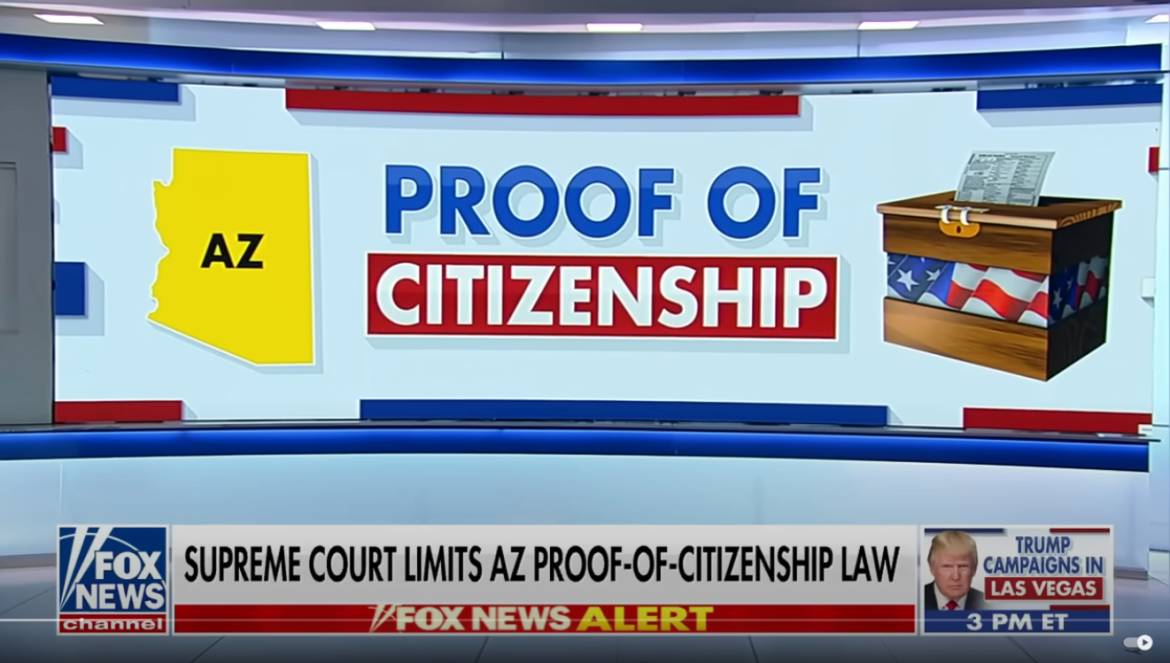The U.S. Supreme Court has declined to revive key provisions of a Republican-backed Arizona voting law that could have prevented thousands of residents from voting in the upcoming November election. The decision leaves in place a lower court’s hold on a part of the law that would have required voters to prove their U.S. citizenship before participating in the presidential election.
The law, which had been a subject of significant controversy, included measures that would have imposed strict citizenship verification requirements. Critics argued that these provisions were designed to disenfranchise voters, particularly minority groups and others less likely to have immediate access to the necessary documentation.
While the Supreme Court refused to reinstate the full scope of the law, it did allow Arizona to implement other proof of citizenship rules. Specifically, the state can now require new voters to provide evidence of their citizenship using Arizona’s voter registration form. This compromise reflects the Court’s attempt to balance the enforcement of voter integrity measures with the protection of voting rights.
The decision revealed a split among the justices. Conservative Justices Clarence Thomas, Samuel Alito, and Neil Gorsuch expressed that they would have supported allowing more of Arizona’s proof of citizenship requirements to take effect. On the other hand, Justices Sonia Sotomayor, Elena Kagan, Ketanji Brown Jackson, and Amy Coney Barrett were in favor of maintaining a hold on the contested provisions, citing concerns over voter suppression.
The ruling is a significant moment in the ongoing national debate over voting rights and election security. Supporters of the Arizona law argue that stricter voting regulations are necessary to prevent fraud and ensure the integrity of elections. However, opponents view these measures as thinly veiled attempts to suppress voter turnout among vulnerable populations.
With the November election approaching, the focus will now shift to how Arizona’s modified voter registration requirements will be implemented and whether they will impact voter participation in a critical swing state.



